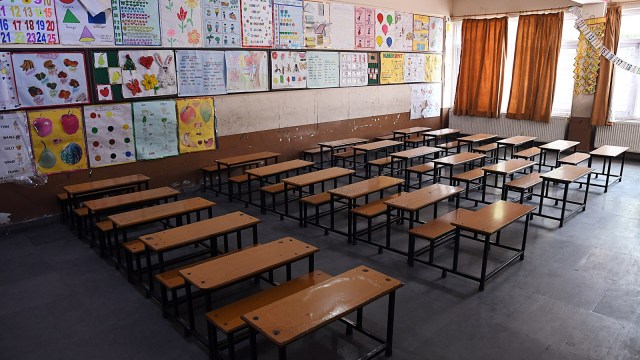

New DelhiFeb 7, 2025 13:20 IST First published on: Feb 7, 2025 at 13:20 IST
One curveball often thrown at Maths teachers is, “Oh you are a Maths teacher. Your calculation must be fast and accurate!” To be honest, calculating large sums accurately does not bring joy to everyone, including many teachers. Mathematics has other joys to offer — geometry, algebra, calculus, vectors, graphs, irrational numbers which are not bound by the usual operations of addition and subtraction.
The recent study by a team of researchers, including Nobel laureates Esther Duflo and Abhijeet Banerjee (‘Wide gap between “street maths” and “school maths”, shows study’, IE, Feb 6) shows that there is a considerable gap in the way mathematics, specially numeracy, plays in the hands of street kids versus school-going students. Yet again, an unsurprising truth is revealed to us — street kids, or the children working at shops and factories instead of going to school — are good with numbers. The social reasons that position these kids in markets instead of putting them in a classroom are beyond the scope of this discussion. However, one has to agree: The capability to add, subtract, divide correctly is directly tied to their daily finances. One wrong calculation can mean a lot of money going in wrong hands. It can also translate into a day without food. When the stakes are so high, correct calculation becomes a means to survival. The one with better calculation skills has better chances at it in the market, and eventually in life.
Story continues below this ad
Contrast this to a student’s case. The student in a school classroom has ample chances to make mistakes before mastering the basic arithmetic operations. The only hazard faced by a student is losing a couple of marks in an exam — a pale substitute for a real-world obstacle. Losing a mark or two does not lead to going to bed on an empty stomach. There is no question of survival hinging on getting accurate answers.
The school does a lot of things for students. It teaches them to make connections between a plethora of academic experiences. It teaches them that there are repercussions for wrong and casual actions. It exposes students to a number of reflective scenarios, and it makes them good and articulate communicators, able to speak their mind. Much of this is suppressed when you are a child working at a tea shop. You have to be utterly focused on not getting the wrong answers when doing a calculation. When this child is given a hundred-rupee note, she is expected to return the accurate change to the customer. This exercise happens several times a day. So dealing with money without making any mistakes becomes an essential skill.
Being able to get fast and accurate answers when calculating is a very small part of the reason why one studies Maths. Maths is studied to give the world a better shape from various corners and in myriad ways. Maths has helped in the generation of electricity, in the invention of engines and in placing satellites in orbit. It is used for accident alleviation on roads, better medical diagnosis, functioning of computers, and now, the every-expanding field of AI and machine learning. People who were limited to being lightning fast in calculations could not have done all of this with their very narrow, albeit impressive and mystical-seeming skills.
Story continues below this ad
India has a problem of excess. We have too many students who are learning Maths in schools, but will be clueless about the direction of life in a few years. On the other hand, we have too many young kids trying to make ends meet, by doing their work efficiently and by not being wrong in their calculations. These are two different theatres. The customers faced by working children are real people, normally prone to looking at kids’ mathematical skills with suspicion. For school-going children, these customers may well be their own parents and other people close to them who do not judge them all the time. This offers them a safe space, the luxury of a mindspace in which they can learn by making mistakes. The kids who are working in order to survive are expected to be shrewd from day one without any formal training.
most read
In the end, such comparisons between children facing vastly different kinds and degrees of challenges will not take us to any newer milieus. The efforts of Duflo, Banerjee and their team is appreciated, but for their research to have an impact, we need to think of the way forward. Since one of the aspirations of the aforementioned Nobel Laureates is to find ways to alleviate poverty, we have to find more engaging and sustainable ways to help children who are working.
The writer is an educator with 16 years of experience teaching in senior schools in the NCR


